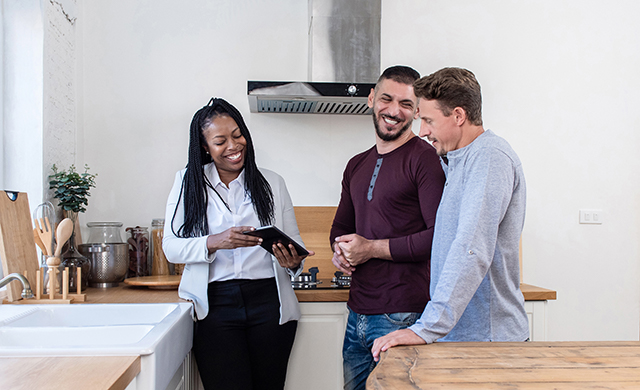Buying a Home—It’s About More Than Features
Diana Carroll2022-07-19T06:16:32-05:00You love the wood floors, chef’s kitchen, and spa-like bathroom. But remember that there’s more to a property than features and looks. Here are additional items to consider before you make an offer. Will It Be Loud? That idyllic street you saw on a Sunday open house might turn into a commuters’ cut-through during the week. Or a nearby grade crossing might prompt frequent train horns in the middle of the night. Visit the home at different times on different days to get a sense for what the noise level is like, and consider asking current neighbors about sources of significant noise and traffic. How Old Is That Really Expensive Thing To Replace? The seller’s disclosure notice may alert you to known issues with major appliances and systems, but those sources won’t tell you that the HVAC or roof is nearing the end of its lifespan. Knowing the age of certain items can help estimate when they need to be replaced. A home inspector can likely give you information about whether certain systems are deficient, but don’t count on an inspection to reveal how much life is left in a component. In some cases, the installation date may be available or visible. Can I Do It My Way? Homeowners associations can benefit property owners but they come with rules and regulations that must be followed. Be sure to review all documents from an HOA before you commit to a purchase. Likewise, city codes and ordinances restrict what you can do with your property. You don’t want to find out after you close that you can’t park your boat trailer in the driveway or paint your house your favorite shade of red. Will the View Change? That view of the hills or lake or city skyline can be a huge selling point. But will that feature remain? If you’re buying in a master planned community, check with the builder to see if there are plans to develop something that may obstruct the view. Otherwise, you can look into the area’s zoning to understand whether that scenic view might be jeopardized. Keep in mind that development plans and zoning are subject to change in the future.


